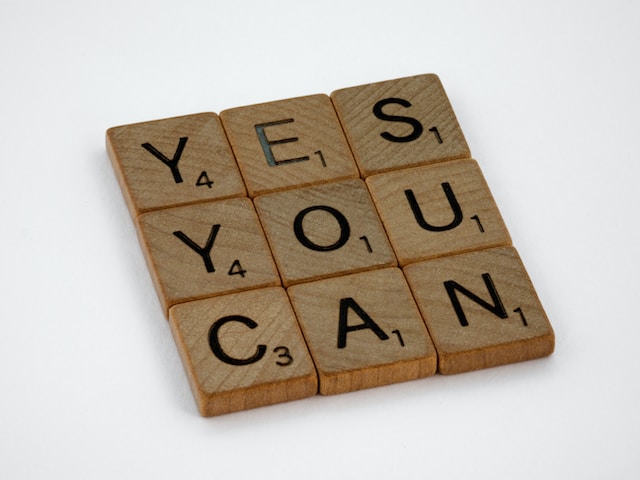Self esteem and self confidence are both important components of personal growth. Self-esteem involves valuing yourself as a person, while self-confidence is about believing in your abilities or competencies. Both can be improved by taking steps such as developing healthy habits and being mindful of negative thoughts.
Self-Esteem
(Photo by Dakota Corbin on Unsplash )

Self-esteem, on the other hand, is the opinion we have of ourselves. It is how we see and value ourselves. People with high self-esteem have a positive view of themselves. They feel good about who they are and what they can do. People with low self-esteem often feel unworthy and incapable.
Self-Confidence
(Photo by Brett Jordan on Unsplash )

Self-confidence is the belief in oneself and one’s abilities. It is a critical part of success in any area of life. Self-confident people are able to set goals and achieve them. They believe in their abilities and are not afraid to take risks.
Self-Esteem Vs. Self-Confidence – Key differences
Self-esteem is the belief that you are worthy and deserving of happiness, love, and success. It is the foundation of self-confidence. Self-confidence is the belief that you can achieve your goals and create the life you want.
Self-esteem is the belief that you have about yourself. It is how you see and feel about yourself. Self-confidence, on the other hand, is the belief that you have in your abilities. It is the trust that you have in yourself to be able to do something or accomplish a task.
Self-esteem is an internal belief system. It is how you feel about yourself independent of what others think or say. Self-confidence, on the other hand, can be based on external factors such as other people’s opinions or past successes.
Self-esteem is stable over time. It does not fluctuate based on external conditions. Self-confidence, however, can be shaken by failures or setbacks.
Self-esteem is about acceptance. It is accepting yourself for who you are, flaws and all. Self-confidence is about competence. It is believing in your ability to achieve your goals regardless of obstacles.
There are key differences between self-esteem and self-confidence:
- Self-esteem is about how you see and feel about yourself while self-confidence is about trusting your abilities.
- Self-esteem can be affected by outside factors such as what others think of you while self-confidence comes from within.
- Low self-esteem can lead to negative thinking and a lack of motivation while low self-confidence may just mean doubting your abilities on occasion.
- High self-esteem leads to positive thinking and increased motivation while high self-confidence results in feeling capable and able to take on anything.
How to Improve Your Self Esteem?
We all know that person who seems to be brimming with self-confidence. They walk into a room and command attention. They always seem to know the right thing to say or do. They make you feel like they can achieve anything they set their mind to.
What is the difference between self esteem and self confidence?
Self-esteem is how you feel about yourself. It’s based on your opinions, thoughts, and beliefs about yourself. Self-confidence, on the other hand, is more about what you do. It’s based on your actions and behavior. People with high self-esteem often have high self-confidence, but not always.
If you want to improve your self esteem, there are a few things you can do:
- Acknowledge your strengths and accomplishments. Give yourself credit when due and be proud of what you’ve achieved – no matter how big or small.
- Avoid negative self-talk and instead focus on building yourself up with positive affirmations. Every day, tell yourself something good about yourself – even if it feels a bit awkward at first!
- Spend time with people who make you feel good about yourself and avoid those who bring you down. This includes both toxic friendships/relationships as well as social media comparisons that leave you feeling inadequate. Curate your life so that it brings you joy instead of pain.
How to Improve Your Self Confidence?
Improving self-confidence is a process that requires time and effort, but there are several effective strategies you can use to boost your self-esteem. Here are some tips:
- Identify your strengths: Make a list of your strengths and accomplishments. Focus on what you do well and celebrate your achievements, no matter how small they may seem.
- Set realistic goals: Set achievable goals for yourself and work towards them. Accomplishing your goals will boost your self-confidence and motivate you to take on new challenges.
- Challenge negative self-talk: Pay attention to negative self-talk and replace it with positive affirmations. Instead of telling yourself that you can’t do something, tell yourself that you can and will succeed.
- Take care of yourself: Take care of your physical health by getting enough sleep, eating well, and exercising regularly. Taking care of yourself will help you feel better and more confident.
- Practice self-compassion: Treat yourself with kindness and understanding, just as you would a good friend. Don’t beat yourself up over mistakes or setbacks, but instead learn from them and move forward.
- Face your fears: Challenge yourself to step out of your comfort zone and face your fears. Each time you do something that scares you, your self-confidence will grow.
- Surround yourself with positivity: Surround yourself with positive, supportive people who encourage and uplift you. Being around negativity can bring you down and make it harder to feel confident.
Remember that building self-confidence is a journey, and it’s okay to have setbacks along the way. Keep working at it, and you’ll gradually develop a stronger sense of self-worth and confidence.
Which is more important self-esteem or self-confidence?
Self-esteem and self-confidence are both important, but they are not the same thing. Self-esteem refers to how much you value yourself and your worth as a person, while self-confidence refers to your belief in your ability to succeed and achieve your goals.
In order to succeed and be happy, you need both self-esteem and self-confidence. Without self-esteem, you may struggle to believe that you are worthy of success and happiness, and without self-confidence, you may struggle to take action and pursue your goals.
So, in a way, they are both equally important. However, it’s also worth noting that self-esteem tends to be more stable and long-lasting, while self-confidence can fluctuate depending on your current situation and experiences. Therefore, it’s important to work on both your self-esteem and self-confidence in order to build a strong foundation for success and happiness in your life.
What are some examples of self-esteem?
Self-esteem is a person’s overall sense of worth or value, and it can be demonstrated in a number of ways. Here are some examples of self-esteem:
- Feeling proud of your accomplishments: When you achieve something you’ve worked hard for, it can boost your self-esteem and make you feel proud of yourself.
- Having a positive self-image: If you feel good about the way you look, dress, and present yourself to others, it can increase your self-esteem.
- Believing in yourself: When you have confidence in your abilities and believe that you can succeed, it can increase your self-esteem.
- Knowing your boundaries: When you respect your own needs and feelings, and assert yourself when necessary, it can increase your self-esteem.
- Treating yourself with kindness and compassion: When you show yourself love and kindness, and take care of your physical and emotional needs, it can increase your self-esteem.
- Taking responsibility for your actions: When you take ownership of your mistakes and work to correct them, it can increase your self-esteem by demonstrating your integrity and commitment to personal growth.
What are some examples of self-Confidence?
Self-confidence is a belief in one’s own abilities, qualities, and judgments. Here are some examples of self-confidence:
- Public speaking: Having the confidence to speak in front of a large audience without fear or anxiety.
- Trying new things: Having the confidence to try new activities or take on new challenges, even if they are unfamiliar or outside of your comfort zone.
- Making decisions: Having the confidence to trust your judgment and make decisions, even if they are difficult or unpopular.
- Assertiveness: Having the confidence to speak up for yourself, set boundaries, and express your needs and desires in a clear and respectful manner.
- Handling criticism: Having the confidence to receive criticism or feedback without becoming defensive or discouraged.
- Facing fears: Having the confidence to face your fears and take action, even if it is uncomfortable or scary.
- Taking risks: Having the confidence to take calculated risks in order to pursue your goals and dreams.
Remember that self-confidence is not a fixed trait, and it can be developed and improved over time. By taking small steps outside of your comfort zone and practicing self-compassion, you can build your self-confidence and achieve your goals.
Featured Image By – Gerd Altmann from Pixabay








